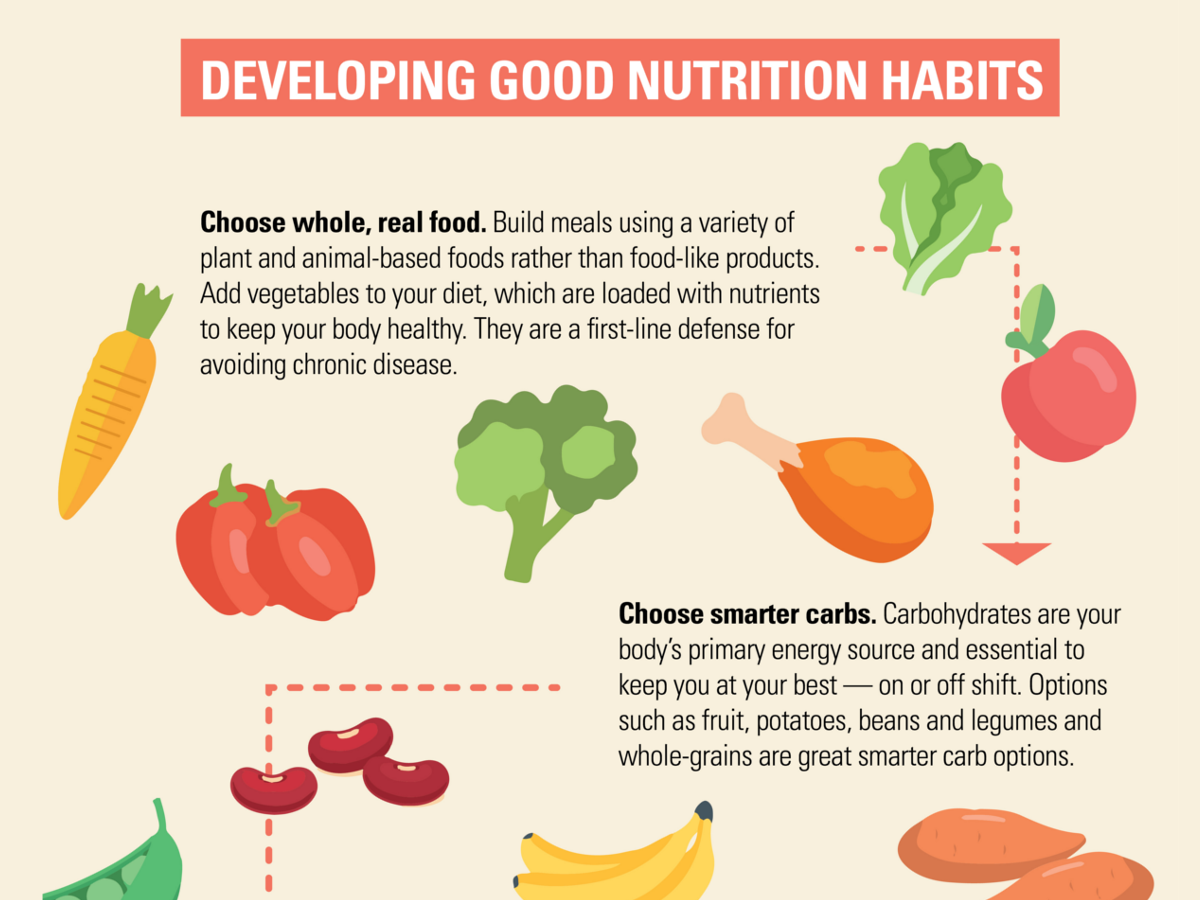Choose whole, real food. Most of the food you eat should be whole, real food. Build meals using a variety of plant and animal-based foods rather than food-like products.
Eat protein at every meal. Whether it is animal or plant-based protein, it is important to include a serving of protein at every meal. Protein is the building block for all your cells. It fills you up and keeps you full longer, which is essential considering the unpredictability of shift work.
Add in vegetables. Whether you like them or not, vegetables are loaded with nutrients to keep your body healthy. They are a first-line defense for avoiding chronic disease. Get creative with how you prep them and aim for 1-2 servings with each meal.
Choose smarter carbs. Carbohydrates are your body’s primary energy source and essential to keep you at your best — on or off shift. Smarter carbsdeliver both energy and nutrients. Options such as fruit, potatoes, beans and legumes and whole-grains are great options to add.
Be intentional about fat. Fat is another must-have for a healthy body, as long as it’s intentional. Most fat is hidden or mindlessly added to meals. Pay attention to fat sources and opt for naturally occurring ones, such as olive oil, nuts and avocados. They also help your body absorb many of the nutrients your body needs.
Work towards better. This is a slow process, so don’t expect perfection. Over time, as your daily nutrition habits improve, you’ll have more energy and feel better. By focusing on the basics, you will build confidence, experience and proficiency with your nutrition. This can be a catalyst to a longer, healthier and happier life.
For more information on fire fighter nutrition, visit this page.



